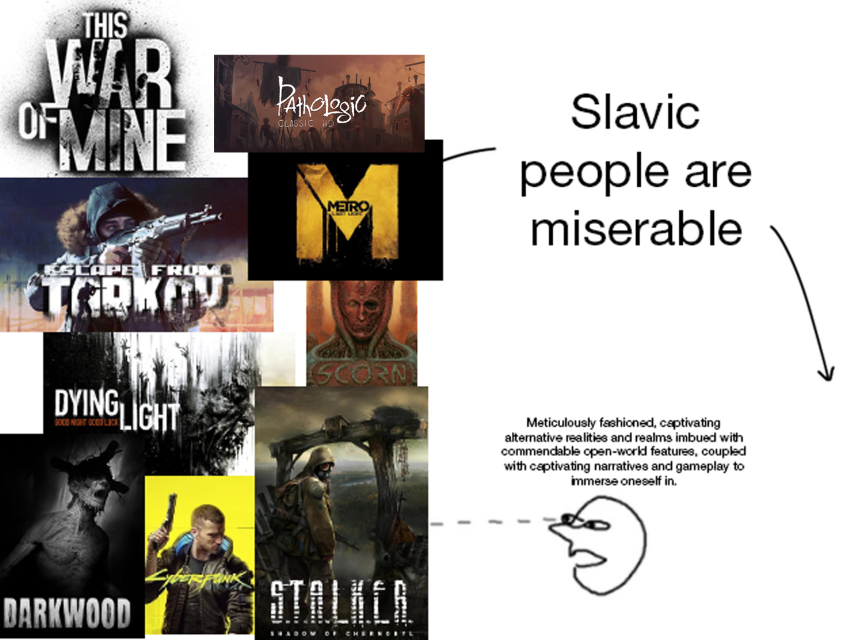Depictions of the Desert

In Slavic media, the country and environment in modern times is depicted to be cold, miserable and painful to live in however despite all of that there's an underlying resilience and warmth in the people that contrasts sharply with the bleakness of their surroundings. The harsh climate and challenging circumstances have forged a community that values solidarity and perseverance. Neighbors share what little they have, families gather close to preserve their traditions, and there's a deep sense of pride in enduring whatever hardships life throws at them.
This, in massive contrast, is not how the deserts of modern Arabia is depicted. The vast deserts, while seemingly barren, conceal immense oil reserves that have transformed the region into one of the wealthiest in the world. This wealth has given rise to towering skyscrapers, luxurious lifestyles, and rapid urban development, creating a striking contrast between the ancient, nomadic traditions and the ultra-modern cities that now dominate the landscape. The stark heat of the Arabian deserts is as unforgiving as the cold of the Slavic lands, yet the portrayal in media often leans more towards the shimmering mirage of wealth than the reality beneath.
The harsh climate, relentless, mirrors the social divides that are often glossed over in the glittering depictions of modern Arabian cities. While the 'elite' enjoy lives of unimaginable wealth, there are many who find themselves isolated, caught in a web of tradition and modernity, wealth and poverty, where loneliness thrives even in the midst of urban opulence due to the car-centric designs of the cities people live in, and societal norms that force people to bottle up negative feeling lest they stir up too much trouble that brings the ire of people in charge. I wonder if there should be a shift in the depiction of living in the deserts, where we could highlight the irony of the warmest regions on Earth houses the loneliest coldest depressing societies. The shift to a narrative from the grand bright society down low to the small groups of people in the shadows trying to make ends meet, the struggle of the common man living in a the mouth of a beast that is trying to chew them to the bone.
Stories about living in a foreign country far from home, growing up in a country that doesn’t consider itself your home, and the struggles of living as a second-class citizen could delve into how people cope with the emotional toll of living in a society that prioritizes appearances and wealth over the well-being of its inhabitants. These narratives could explore the ways people resist or adapt to the pressures they face, whether through quiet defiance, forming underground communities, or finding solace in small acts of rebellion. As an anarchist, it could be interesting to explore how disillusionment with the established order leads people to seek alternative ways of living, questioning the societal norms that keep them oppressed. These stories could serve as a critique of the hollow opulence that defines the surface of these societies, revealing the cracks beneath the glittering facade and the potential for something more meaningful to emerge from the shadows.